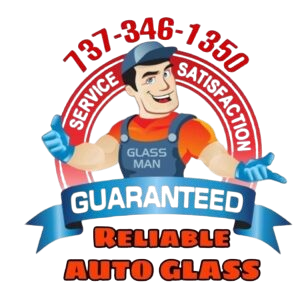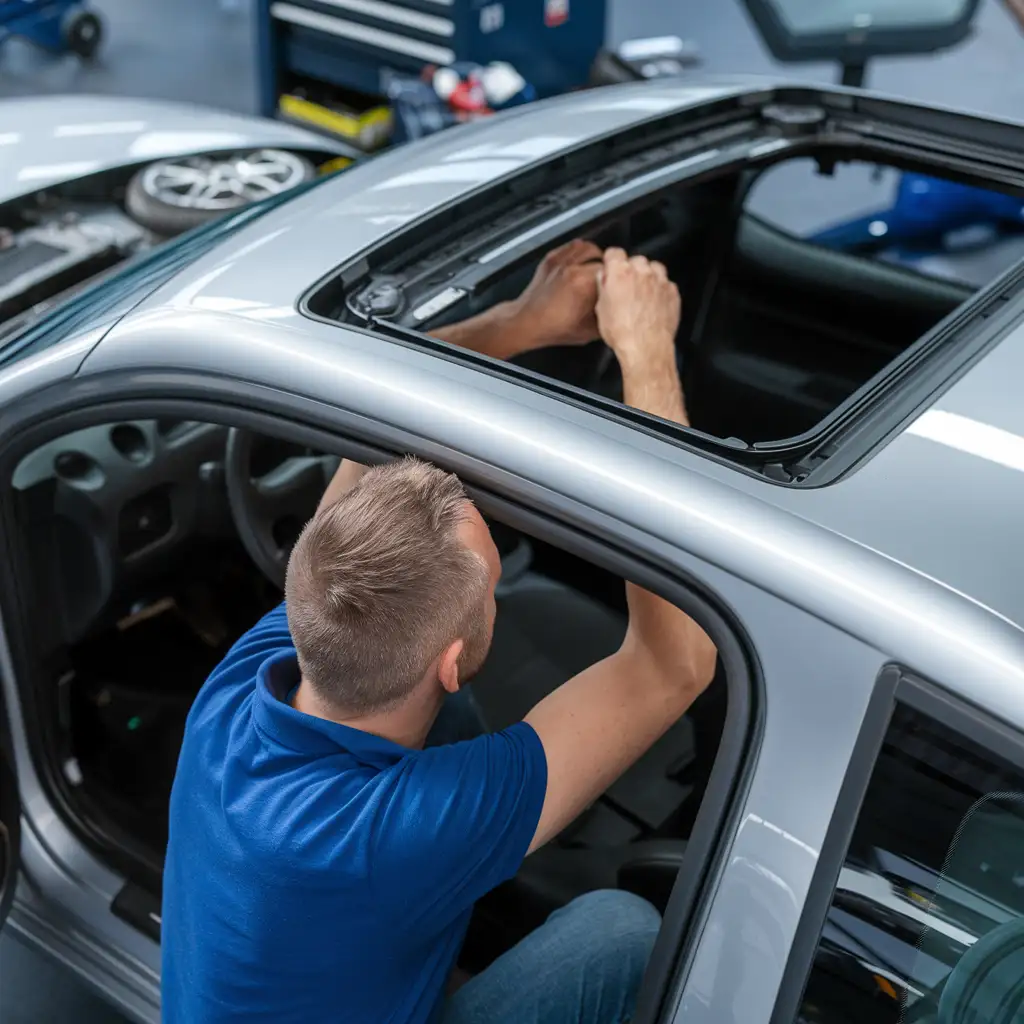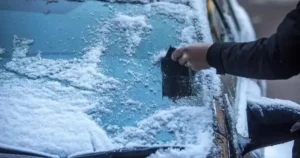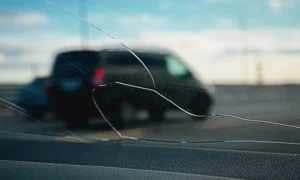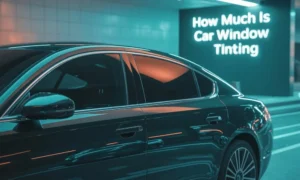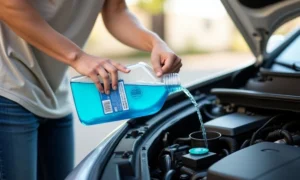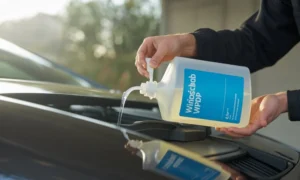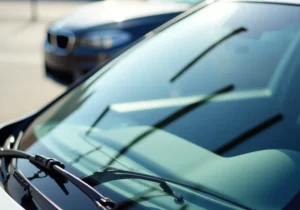Sunroof seal replacement is essential for maintaining the integrity of your vehicle’s sunroof system. Sunroofs and sunroof glass enhance the driving experience by allowing natural light and fresh air into the cabin, making journeys more enjoyable. However, the benefits of having a sunroof can quickly diminish if the sunroof seals are compromised. Damaged sunroof seals can lead to leaky sunroofs, which not only affect comfort but can also cause water damage to the interior of the vehicle. Regular maintenance and timely replacement of sunroof seals are crucial for protecting your car and ensuring a pleasant driving experience.
Sunroof Seals
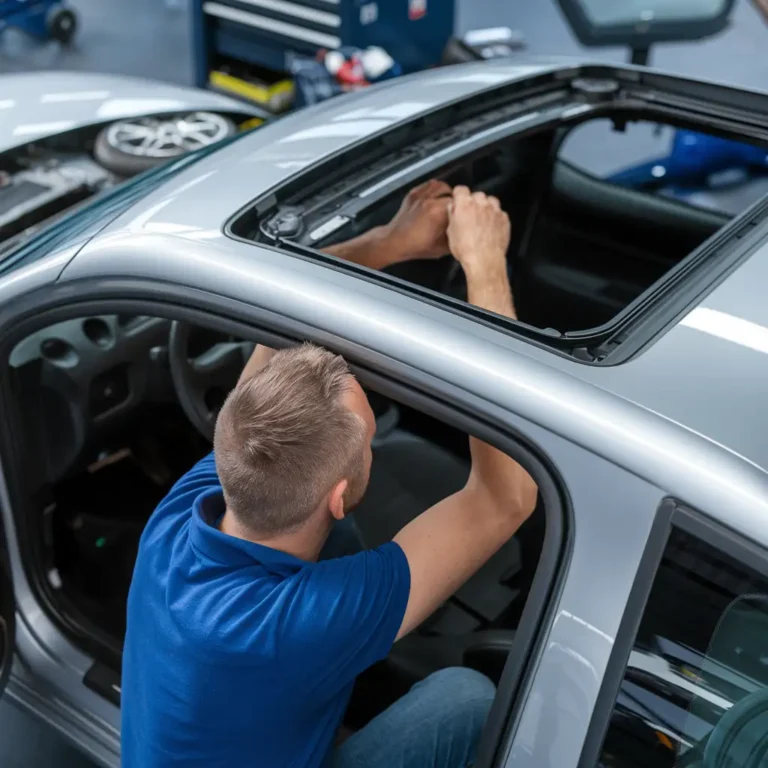
Sunroof seals are rubber or polymer components that are designed to create a watertight and airtight barrier around the sunroof opening in a vehicle. They are essential for preventing leaks and ensuring that no water or air enters the vehicle’s interior when the sunroof is closed.
Function: The primary functions of sunroof seals include:
- Waterproofing: Preventing rainwater and moisture from entering the cabin.
- Noise Reduction: Reducing wind noise and vibrations when driving with the sunroof open.
- Thermal Insulation: Helping to maintain the cabin temperature by minimizing air leaks.
- Protection Against Debris: Keeping out dust, dirt, and other particles that might enter through the sunroof opening.
Common Materials Used in Sunroof Seals
EPDM (Ethylene Propylene Diene Monomer):
- A popular choice for its durability, flexibility, and resistance to UV radiation, ozone, and weathering.
TPV (Thermoplastic Vulcanizate):
- Combines the advantages of rubber and plastic, offering excellent weather resistance and flexibility.
Neoprene:
- Known for its good resistance to oils, chemicals, and weather, but typically less flexible than EPDM.
Silicone:
- Provides excellent temperature resistance and flexibility but is generally more expensive and may not be as durable in all conditions.
PVC (Polyvinyl Chloride):
- Often used for budget-friendly options; it can be less durable and more prone to wear compared to other materials.
These materials are chosen based on factors such as durability, environmental resistance, and cost, ensuring effective performance of the sunroof seals over time.
Types of Sunroof Seal Damages
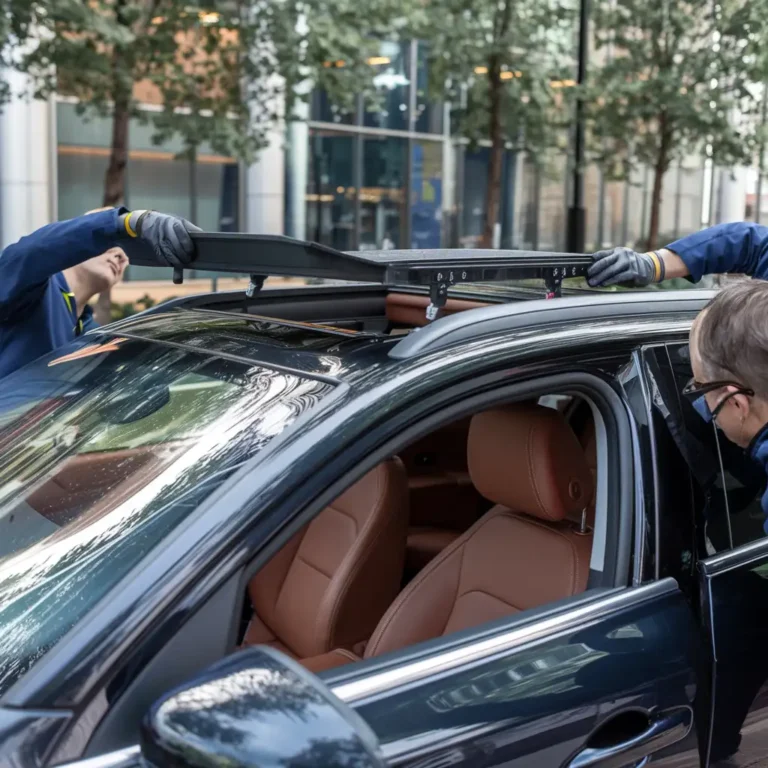
Cracks and Tears
Causes:
- Extreme Temperature Changes: Rapid heating and cooling can cause materials to expand and contract, leading to cracks.
- Physical Impact: Objects hitting the sunroof or heavy snow accumulation can result in tears.
- Improper Installation: Poor fitting during manufacturing or sunroof replacement can predispose seals to damage.
Effects on Performance:
- Water Leaks: Cracks and tears can create pathways for water to enter the cabin, leading to potential interior damage and mold growth.
- Increased Noise: Damaged seals can allow wind noise and vibrations to enter the vehicle, reducing comfort.
- Air Leakage: Reduced thermal insulation can cause climate control issues, making it harder to maintain desired cabin temperatures.
Wear and Tear Over Time
- Exposure to UV Rays: Prolonged sunlight can weaken seals, making them brittle and more prone to damage.
- Chemical Exposure: Road salts, oils, and other chemicals can break down the material, leading to premature wear.
- Frequent Use: Regular opening and closing of the sunroof can contribute to mechanical wear and fatigue of the seals.
Effects:
- Decreased Effectiveness: Worn seals may not form a proper barrier, leading to leaks and reduced insulation.
- Need for Replacement: Over time, constant wear may necessitate replacement to maintain performance.
Misalignment Issues
- Installation Errors: Improperly aligned sunroofs during installation can prevent seals from making complete contact with the frame.
- Wear on Components: Over time, mechanical components (like tracks and hinges) can wear out, causing misalignment.
Effects:
- Inadequate Sealing: Misalignment can leave gaps, leading to water and air leaks.
- Increased Strain on Seals: Misaligned sunroofs can create additional stress on seals, increasing the likelihood of cracks and tears.
Environmental Damage
- Rain and Humidity: Consistent exposure to moisture can lead to mold growth and degradation of seal materials.
- Extreme Temperatures: High heat can cause seals to harden and crack, while extreme cold can make them brittle and less flexible.
- Pollution and Debris: Dust, dirt, and other environmental pollutants can accumulate and degrade seal integrity over time.
Effects:
- Reduced Lifespan: Environmental factors can significantly shorten the lifespan of sunroof seals, requiring more frequent inspections and replacements.
- Performance Issues: Environmental damage can lead to leaks, noise, and decreased comfort inside the vehicle.
Sunroof Seal Repair in Austin
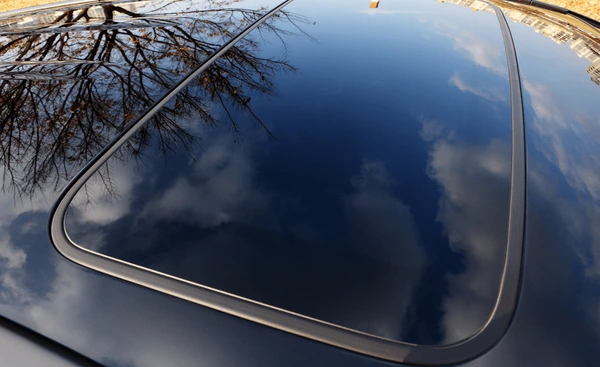
At Reliable Auto Glass, we specialize in sunroof seal repair to keep your vehicle’s interior safe and comfortable. Our experienced technicians understand the importance of maintaining the integrity of your sunroof seals. Here’s what you can expect from our service:
Why Choose Reliable Auto Glass?
- Expert Technicians: Our skilled professionals have extensive experience in sunroof seal repairs, ensuring high-quality workmanship.
- Quality Materials: We use top-grade materials to replace or repair seals, enhancing durability and performance.
- Fast Turnaround: We understand that your time is valuable, which is why we strive to provide quick and efficient service.
- Customer Satisfaction: Our priority is to ensure that you are completely satisfied with our services. We provide thorough inspections and transparent recommendations.
Our Repair Process
- Inspection: We conduct a comprehensive evaluation of your sunroof and seals to identify the extent of the damage.
- Assessment: Based on the inspection, we determine whether sunroof repair or replacement is needed.
- Repair/Replacement: Our team performs the necessary repairs or installs new seals, ensuring a perfect fit and proper alignment.
- Testing: After the work is complete, we test the sunroof for proper sealing and functionality, ensuring there are no leaks.
Common Issues We Address
- Cracks and Tears: Repairing or replacing damaged seals to prevent leaks.
- Wear and Tear: Evaluating and addressing aging seals for optimal performance.
- Misalignment Issues: Realigning sunroofs to ensure proper contact with seals.
- Environmental Damage: Assessing and mitigating the effects of weather exposure on seals.
Sunroof Rubber Seal Repair
When Rubber Seal Repair Is an Option
Rubber seal repair is a practical choice under several circumstances:
- Minor Damage: Small cracks, tears, or localized wear that do not compromise the seal’s overall integrity can typically be repaired effectively.
- Material Condition: If the rubber is still flexible and not brittle or extensively degraded, repairs can restore functionality.
- Limited Area of Damage: If only a specific section of the seal is affected, targeted repairs can be a viable solution.
- Preventive Measures: If repairs can extend the lifespan of the seal before significant issues arise, they can be beneficial.
- Cost Sensitivity: If you’re looking to save money and the damage is not severe, repair is often more economical than a full replacement.
Cost-Effectiveness of Repair vs. Replacement
Repair Costs:
- Generally lower than replacement costs, as repairs often involve minimal materials and labor.
- Repairs can often be completed quickly, reducing labor expenses.
Replacement Costs:
- Higher due to the need for new materials and potentially more labor-intensive installation processes.
- Replacement may be necessary if the seal is extensively damaged or shows signs of significant wear.
Longevity and Performance:
- While repairs can be cost-effective initially, they may not offer the same longevity as a new seal, potentially leading to future expenses if the repair fails.
- New seals provide reliable performance and longer-lasting results, which may justify the upfront investment.
Overall Value:
- If a seal can be effectively repaired and continues to function well, it can save money in the short term.
- However, if frequent repairs are needed, replacement might prove to be the more economical choice over time.
Sunroof Seal Replacement Cost
Typical Costs
Parts:
- Sunroof seals can range from $30 to $150, depending on the make and model of your vehicle.
Labor:
- Labor costs generally range from $75 to $150 per hour. The time required for the replacement can vary but usually takes about 1 to 2 hours.
Total Estimated Cost:
- In total, you might spend anywhere from $100 to $450, factoring in parts and labor.
Factors Influencing Price
Vehicle Make and Model:
- Luxury or rare vehicles often have higher parts costs. Some makes may require specialized seals or longer labor time.
Location:
- Labor costs can vary by neighborhood in Austin. Areas with a higher cost of living might have higher labor rates.
Condition of the Sunroof:
- If there’s additional damage (e.g., rust or broken components), repair costs can increase.
Warranty or Insurance:
- If the sunroof seal is covered under warranty or insurance, your out-of-pocket expenses might be significantly reduced.
Final Thoughts
Sunroof seal replacement is a crucial service to ensure your vehicle remains watertight and comfortable. At Reliable Auto Glass, we specialize in providing high-quality seal replacements that not only enhance the functionality of your sunroof but also protect your interior from water damage and leaks. Our experienced technicians use premium materials to ensure a perfect fit and durability, giving you peace of mind for years to come. Trust us for all your sunroof seal needs and experience the difference in quality and service.
FAQs
How Do I Know If My Sunroof Seal Needs Replacement?
Signs that your sunroof seal may need replacement include water leaks inside the vehicle, visible wear or damage to the seal, and excessive wind noise while driving.
Can I Replace The Sunroof Seal Myself?
While some DIY enthusiasts may attempt this, it’s recommended to have a professional handle the replacement to ensure proper installation and avoid potential damage to the sunroof.
How Long Does A Sunroof Seal Replacement Take?
The process typically takes about one to two hours, depending on the make and model of your vehicle and the condition of the existing seal.
What Materials Are Used For Sunroof Seals?
Sunroof seals are usually made from high-quality rubber or silicone materials designed for durability and resistance to weather conditions.
Will Replacing The Sunroof Seal Improve My Vehicle’s Performance?
Yes, a properly sealed sunroof can improve your vehicle’s overall performance by reducing noise, preventing water leaks, and enhancing insulation.
How Much Does Sunroof Seal Replacement Cost?
The cost can vary based on the vehicle make and model, but it generally ranges from $100 to $300, including parts and labor.
How Can I Maintain My Sunroof Seal After Replacement?
Regularly clean the seal with mild soap and water, inspect it for wear, and avoid using abrasive materials that could damage it.
